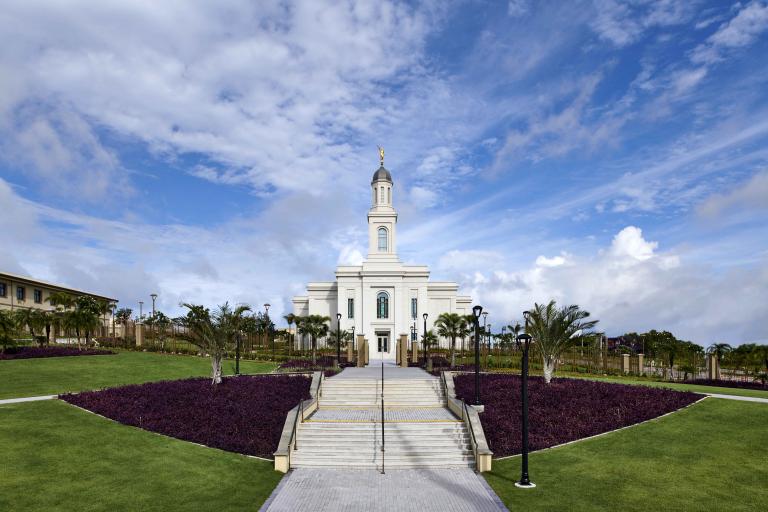
***
It is, I realize, a weird character flaw — or, probably more accurately said, a regrettable personality defect — but I’m quite interested in what critics of the Church have to say. For example, I look in every few days on two extremely unpleasant (and mostly atheist) online anti-Mormon message boards, so as to see what’s agitating or delighting people there.
I’m often astonished, to be frank, at the profound cynicism, the deep and hostile negativity, of some people on those sites. I don’t discount the fact that there are reasons for doubt and occasions for taking offense or feeling injured. But the attitude of some seems to me to go beyond that. Candidly, it often seems to me a spiritual illness. And a debilitating one.
I sincerely hope that these folks are happier and more pleasant in real life, away from those sites. If they were ever interested in my counsel, though, it would be to avoid such places like the plague. Not merely because they’re faith-destroying, but because the sneering, angry cynicism and the incessant fault-finding and defamation that flourishes on such sites seems to me soul-destroying.
Since the annual General Conference of the Church of Jesus Christ of Latter-day Saints is coming this weekend, a particular episode is on my mind. I well recall the period back a few years ago when I watched reactions to the call to the apostleship of Elders Gerrit Gong and Ulisses Soares. Previously, many on these sites had mocked and derided and denounced the Church for its failure to include a Latin American or a non-Caucasian among the Twelve. And, in the days immediately leading up to that particular General Conference, these folks had been confidently predicting the choice of certain (absolutely worthy but) Utah-born white guys to fill the two apostolic vacancies. In fact, they were already denouncing the Church based upon their assurance that the new appointees would be more of the same.
They were wrong, of course. But they didn’t miss a beat. (“Often wrong,” goes the saying, “but never in doubt.”)
Elder Soares was really a European Brazilian, they said, not a genuine Latino. His skin was too white. So he didn’t count. Elder Gong’s ancestors came to the United States too early, so he was really just another predictable American. His Asian roots and appearance and his extensive experience in Asia itself were irrelevant. He was too well-educated. (A doctorate from Oxford? Really? How terrible!) Why weren’t these new apostles poor fishermen, like those chosen by the mortal Christ? They were too old. So they were out of touch. There should be younger apostles — in their twenties, or at least in their thirties. Old people just don’t get it, and Elders Gong and Soares were old. And, anyway, the Church should have been appointing ethnic-minority apostles years before. Church leaders are desperate. But it’s too late.
I wasn’t surprised. I was just saddened.
As long as they insist on viewing everything in the most negative possible light, rejoicing (in a sense) in iniquity, delighting in anything that might embarrass the Church, seeing base ulterior motives in everything Church leaders say and do, mocking believers, and so forth, such critics won’t be able to see good. They’ll be beyond help.
The passages in the Bible and the Book of Mormon that describe people as “murmuring” seem to me, in this light, utterly believable and prescient, and I’m honestly surprised, occasionally, that today’s murmurers cannot plainly see that they’re following that same path, making the same obvious mistake that, when they were believers, they had probably read about and marveled at.
I’m powerfully reminded, too, of a passage toward the end of C. S. Lewis’s novel The Last Battle, one of the seven books in his “Chronicles of Narnia” — books that I earnestly, earnestly recommend to any still unfamiliar with them. (The movies based on them convey little of their true power.)
In the final, culminating battle in the history of Narnia, a group of cynical dwarves refuse to commit themselves either to the good cause of Aslan and the Narnians or to the evil forces of Tash and the Calormenes, and their cynicism prevents them from seeing reality as it is:
Aslan raised his head and shook his mane. Instantly a glorious feast appeared on the Dwarfs’ knees: pies and tongues and pigeons and trifles and ices, and each Dwarf had a goblet of good wine in his right hand. But it wasn’t much use. They began eating and drinking greedily enough, but it was clear that they couldn’t taste it properly. They thought they were eating and drinking only the sort of things you might find in a Stable. One said he was trying to eat hay and another said he had got a bit of an old turnip and a third said he’d found a raw cabbage leaf. And they raised golden goblets of rich red wine to their lips and said, ‘Ugh! Fancy drinking dirty water out of a trough that a donkey’s been at! Never thought we’d come to this.’ But very soon every Dwarf began suspecting that every other Dwarf had found something nicer than he had, and they started grabbing and snatching, and went on to quarreling, till in a few minutes there was a free fight and all the good food was smeared on their faces and clothes or trodden under foot. But when at last they sat down to nurse their black eyes and their bleeding noses, they all said: ‘Well, at any rate, there’s no Humbug here. We haven’t let anyone take us in. The Dwarfs are for the Dwarfs!’
‘You see,’ said Aslan. ‘ They will not let us help them. They have chosen cunning instead of belief. Their prison is only in their own minds, yet they are in that prison; and so afraid of being taken in that they can not be taken out.’











